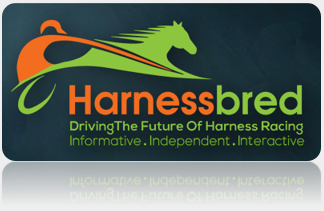
It’s at this time of the year that we celebrate the success of the 2yo winners of the APG sales and the outstanding efforts by all concerned. But we also have to look sympathetically at the owners throughout the country that are contributing to the upkeep of the regional, provincial and city racing that have been hung out to dry.
Whilst the APG is a professional, self funded organization that contributes largely to their prize money, the real beneficiary’s would be the governing bodies that profit from these events through betting turnover etc,.
A number of years ago all racing codes in NSW were awarded a 1.5% increase from the betting agency’s by way of a ruling from the courts. It was at this time it was announced that the NSW Governing Harness Racing Authorities would now be able to increase prize money throughout the state. Unfortunately, since then there has been very little movement in the way of prize money increases throughout the state blaming the blow out cost of the integrity department. It has also been noted that a poor deal with betting agency’s over the fixed odds tax parity has affected revenue income as well.
With increased training fees, veterinarian and husbandry costs alongside the aforementioned factors, it is not surprising owners are choosing to decrease their stock numbers (or in some cases leave the industry all together) and thus affect a number of racing participants (including slow growths and interest) in the sales ring and a down turn in training numbers.
It has been argued that the punter is the most important cog in the wheel of racing as without them there is no revenue. But it would be apparent that without the Owners involvement in supplying horses to be raced that neither the punters, trainers or breeders could exist in this sport in its entirety, and therefore the owners could be considered the most important cog in this industry. All this without the due consideration by the bodies that adjudicate over them.
As it was eluded to earlier with the costs of having horses trained along with associated costs veterinarian, agistment, breaking, pre training shoeing, transporting etc along with the compulsory 12% contribution from the prizemoney to the trainer and driver. It appears that it has come some what out of control and near impossible to recover your investment. One prominent country business owner who races horses has suggested that every horse he has in work has to win on average 1.2 races per month to break even if they race their horse over a 8 month period before they are given a break. Coupled with this is the fact that the horse rises in class and it is harder and harder to win.
It has to be said that the controlling bodies have improved some aspects by reducing admin fees and introducing some bonuses on a horses first win, and breeding them, but this has been heavily negated with the stagnate or meniscal prize money increase over the last number of years that have been promised in the past.
Authorities indicate that there is no money available to contribute to the increase of the prize money whilst we have no access to the actuals from the bodies its hard to believe that the monies such as the unplaced or forfeited race meetings which we are led to believe are in excess of $250,000 are not reticulated back into provincial and country racing to either increase the prize money or introduce further meetings in stead of redirecting it to the already well funded feature racing.
It is also hard to believe that in NSW alone they spend in excess of 1.4 million in integrity to police the sport from drug cheats but demands no monetary compensation from the perpetrators, leaving the owners to pick up the tab to fund it.
In no way would anyone condone the use of drugs in the sport and any person acting in this manner should be dealt with in accordance with the authority. However, what would seem a fairer proposition would be to adopt a similar approach to the AFL allowing a three strike policy then you’re out. Somewhere along the lines of a 6 month suspension and a $5,000 fine for their first offence which would double on there second and third offence in which they would be rubbed out altogether. At least the perpetrators would be contributing to the integrity and policing of the sports for their misdemeanours – not the owners and law abiding participants.
It can also be said that a considerable amount of money – in excess of $18 million – is lost overseas in the way of siring fees every year. Whilst these stallions contribute largely to our breeding stock, if the stallions are not going to reside here in Australia permanently then a small percentage from their covering fee should be directed to the authority’s to distribute to prize money as such. The major beneficiary’s of the sport should contribute financially and the all participants should be rewarded accordingly contributing to a well managed sport with world leading animal husbandry practices.
R Smith
Central West
Approved By Dean Baring www.harnessbred.com
Driving The Future Of Harness Racing

